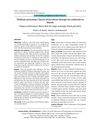Search
for
Sort by
Research
150-180 / 1000+ results
research Hair Zinc and Chromium Levels Associated with Reduced Likelihood of Age-Related Cognitive Decline in Centenarians and Oldest-Old Adults
Higher hair levels of zinc and chromium were linked to less cognitive decline in very old people.

research Nutrition and Hair: The Role of Nutrients in Hair Health
Eating the right nutrients can improve hair health, but taking extra supplements usually doesn't help unless you have a deficiency.

research Acrodermatitis Dysmetabolica With Concomitant Acquired Acrodermatitis Enteropathica in a Patient With Maple Syrup Urine Disease
MSUD patients need careful monitoring of amino acids and zinc to prevent severe symptoms.

research Nutraceuticals: A Review
Nutraceuticals may improve skin health and protect against aging, but more research is needed on their optimal use and possible health risks.

research Diffuse Hair Loss: Causes, Diagnosis, and Treatment
Hair loss that spreads out can often fix itself or be treated by finding and handling the cause.

research Imbalance of Some Trace Elements and Their Correction in Alopecia Areata
Correcting trace element imbalances may help reduce alopecia areata symptoms.

research Effect of Nutrient Antioxidants on Oxidative Stress Indicators in Patients with Alopecia Areata
Antioxidants can help improve hair growth in people with alopecia areata.

research Diffuse Hair Loss: Its Triggers and Management
To manage diffuse hair loss, identify the cause, improve nutrition, remove triggers, and use specific treatments like minoxidil or finasteride.

research Telogen Effluvium: A Review of Acute and Chronic Forms
Chronic Telogen Effluvium may resolve after years and is diagnosed by examining the patient's history and clinical signs, with treatment aimed at underlying causes and possibly minoxidil.

research Finasteride as a Therapy for Hidradenitis Suppurativa
Finasteride improves hidradenitis suppurativa but not for child-bearing women.

research Complementary and Alternative Treatments for Alopecia: A Comprehensive Review
Some alternative treatments for hair loss might work, but more research is needed.

research Bariatric Surgery and Its Effects on the Skin and Skin Diseases
Bariatric surgery affects skin health, causing both direct complications and changes in existing skin conditions, often related to nutritional deficiencies.

research Nutrition and the Deleterious Side Effects of Nutritional Supplements
Taking too many vitamin and mineral supplements can cause serious health problems.

research A Hospital-Based Study to Determine Causes of Diffuse Hair Loss in Women
The main causes of diffuse hair loss in women are telogen effluvium and androgenetic alopecia, often related to stress and iron deficiency.
research Lack of Classic Histology Should Not Prevent Diagnosis of Necrolytic Acral Erythema
Consider necrolytic acral erythema in similar cases and treat with oral zinc sulfate.

research Nutrition of Women with Hair Loss During Menopause
Eating a balanced diet with specific nutrients is important for menopausal women to manage hair loss.

research A Systematic Review on Topical Marketed Formulations, Natural Products, and Oral Supplements to Prevent Androgenic Alopecia
Various treatments, including FDA-approved drugs, natural products, and oral supplements, can help with hair loss, but a patient's medical history and potential allergies should be considered when choosing a treatment.
research Hair Loss After Laparoscopic Sleeve Gastrectomy
Over half of patients had hair loss after weight-loss surgery, especially women, linked to low zinc and vitamin B12 levels.

research Use of Vitamins and Minerals in the Treatment of Hair Loss: A Cross-Sectional Survey Among Dermatologists in Saudi Arabia
Many dermatologists in Saudi Arabia recommend vitamins and minerals for hair loss, often based on personal experience rather than strong evidence.

research Role of Non-Androgenic Factors in Hair Loss and Hair Regrowth
Good nutrition is crucial for healthy hair and can help with hair loss without medication.

research Nutritional Clinical Studies in Dermatology
Nutrition is important for skin health, and changing diet can help prevent and treat skin diseases.

research Molecular Signaling and Nutritional Regulation in the Context of Poultry Feather Growth and Regeneration
Good feather growth in poultry needs the right balance of proteins, amino acids, minerals, and vitamins.

research Role of Nutrition in the Management of Polycystic Ovary Syndrome
A balanced diet and healthy lifestyle help manage PCOS symptoms.
research Dietary Patterns, Plasma and Hair Trace Element in Ukrainian Cohort of Adults During COVID-19 Pandemic: A Cross-Sectional Study
Good nutrition and essential trace elements like zinc, selenium, and iron are important for a strong immune system and reducing COVID-19 severity.

research Role of Non-Androgenic Factors in Hair Loss and Hair Regrowth
Eating a balanced diet with vitamins, micronutrients, and antioxidants is important for hair health and can help with hair loss.

research Hair Conditioners: Impact of Oral Supplements on Skin and Hair Health
Some nutrients and antioxidants may improve skin and hair health, but more research is needed to confirm these benefits.

research Thallium Poisoning: Clinical Observations Through Two Outbreaks in Basrah
Thallium poisoning can cause hair loss, skin rashes, and nerve damage, and can be fatal if not correctly diagnosed and treated.

research Hair Biology and Nutritional Influences
Eating a balanced diet with the right vitamins and minerals is important for healthy hair, but too many supplements can be harmful.

research Skin Abnormality and Hair Loss: The Reproductive Endocrinological Viewpoint
Hormonal imbalances can cause skin and hair problems in women, and treatments that block male hormones can help.